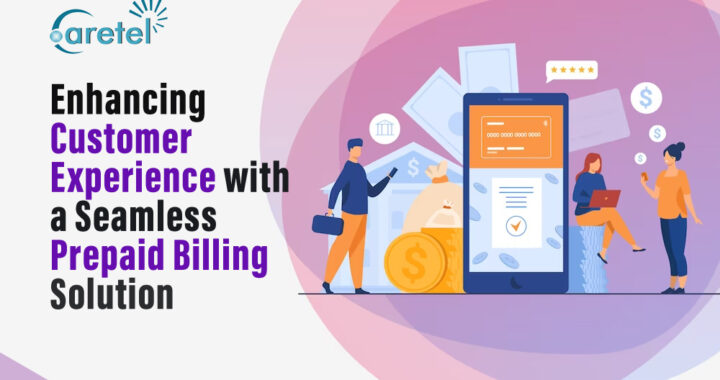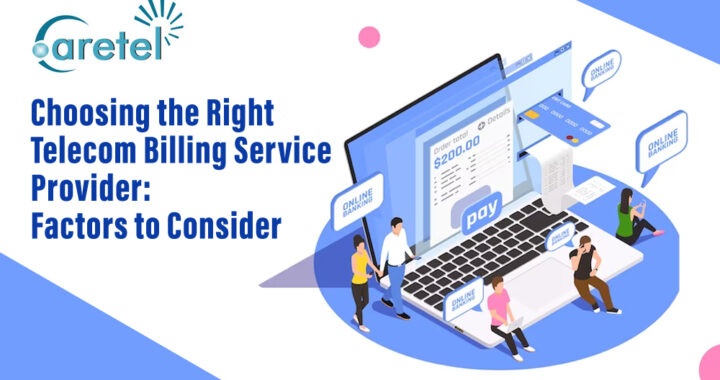Prepaid billing is a technique for paying for products or services before receipt. This telecom billing procedure is gaining popularity. In this article, we’ll analyze on telecom billing system and the advantages it may provide.
Customers may more effectively plan their spending and keep tabs on it using prepaid billing. Prepaid billing enables clients to set a specified budget and only be billed for that amount rather than receiving a statement at the end of the month with a list of charges that can be unexpected.
Telecom Billing Methodology
The product department often controls the billing plan, which most significantly affects adoption and client activation. When a consumer uses prepaid billing, they pay for a service in advance before using it. Postpaid billing, on the other hand, occurs when a consumer makes a payment after using the services.
- Prepaid billing
The most popular business model for conventional SaaS and enterprise software providers is prepaid. Prepaid models can save the business and improve cash flow because the API provider is paid upfront before any services are provided. This is crucial if your acquisition or setup expenses are significant and you want to increase your investment in your product and business expansion. Customers also benefit from prepayment since it makes spending predictable and streamlines procurement procedures. You may manage usage-based invoicing through a committed spend because consumption levels are unknown before payment. Possible here is volume discounting. A Prepaid billing solution, however, can compel a client to make calculations before seeing real-world facts.
- Postpaid Billing
Postpaid, on the other hand, is when you give your clients credit while they use your platform up until they make a payment. Consumption-based business models may be made simpler by postpaid since customers don’t have to “guess” how much they will use. Instead, customers may simply enter their credit card, pay the bill later, and determine the extent of the damage (just as when they eat at a restaurant or go to a bar). Consumption-based business models, such as those used in the cloud and, more recently, the digital advertising sector, have made postpaid billing increasingly common. A benefit of postpaid billing solutions is that a consumer does not have to make an upfront commitment before realising any value.
The advantages of prepaid billing.
Prepaid billing solution has several advantages, one of which is that it keeps customers in charge of their spending. They can budget well when they pay in advance for a service or good since they are fully aware of their outlay. This can be especially useful for individuals wanting to stick to a set spending limit or prevent overspending.
Prepaid billing also has the advantage of saving clients from late fees and other penalties. When using conventional billing, users run the risk of forgetting to pay a payment on time or running out of money. Customers can prevent these problems with prepaid billing by making an upfront payment.
- One-off or continuously
You and your client must first agree on a budget. You start working by setting up time tracking for that customer after adding that budget to your pre-paid credits.
Once you’ve established a prepaid budget, you have a few alternatives. Whether it is a one-time payment or, even simpler, having the budget replenished automatically, decide with your client. If you choose, a fresh invoice can be generated automatically anytime the prepaid budget falls below a preset threshold.
On their summary page, any time tracking associated with that client will be visible. You may choose which ones to take out of their pre-paid budget there.
- Build a trusting relationship
The remaining amount of the budget is always visible. In this manner, you may have open communications with your client. This forges trustworthy postpaid billing solutions that will only advance your working relationship.
- Implementing usage-based pricing
Beyond the usual tiered pricing, implementing usage-based invoicing adds further complications. To reliably and at scale measure client consumption, you need an accurate technique. It must be possible to audit the usage and rely on it to resolve disagreements. In contrast to logging or monitoring tools, this data needs to be precise. You don’t want a situation in which you believe the consumer utilised X but they have evidence to the contrary.
Usage-based charging drawbacks after release
In addition to just putting in place a data pipeline to manage usage-based pricing, several additional difficulties arise, particularly when it comes to controlling client expectations. Customers who use up their allowance much more quickly than expected frequently face a hefty fee they weren’t expecting. This is particularly relevant to APIs and tools with a data volume component.
It’s crucial to communicate with consumers to keep them updated on this. Automated emails that alert clients to their consumption after specific specified thresholds are met are one approach to accomplish this. Even though the quota in this example is not a strict cap, you are still letting the consumer know how much they used over the previous month.
To Sum Up
While businesses strive to enhance their front end, many neglect to sustain and offer fantastic experiences to their consumers after the sale. The most obvious is billing, which, as we just mentioned, offers a huge possibility.
By making these few adjustments, you may drastically reduce your customer care workload and improve the overall client experience.
FAQ
- How does a prepaid billing solution work?
In a prepaid billing solution, customers typically purchase a prepaid plan or recharge their account with a specific amount. They can then use the available credit to make calls, send messages, access data, or avail of other services. The usage is deducted from the prepaid balance until it is depleted or requires a recharge.
- What are the advantages of a postpaid billing solution?
Advantages of a postpaid billing solution include the convenience of using services without the need for a constant recharge, the ability to avail of services even when the account balance is low or depleted, and the option to access additional features or benefits provided by the postpaid plan.
- Can postpaid billing solutions accommodate multiple users or lines?
Yes, postpaid billing solutions often support multiple users or lines within a single account, making it suitable for families, businesses, or individuals who require multiple connections under one bill.
- Are there any limitations to prepaid billing solutions?
Prepaid billing solutions may have limitations such as restricted access to certain services without sufficient credit, the need for manual recharges to continue service, and potential interruptions if the prepaid balance runs out unexpectedly.


